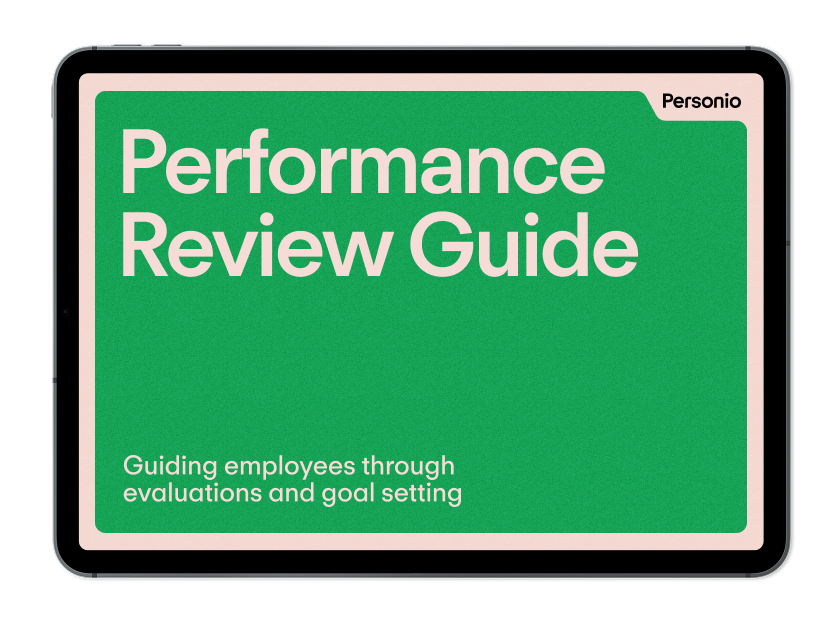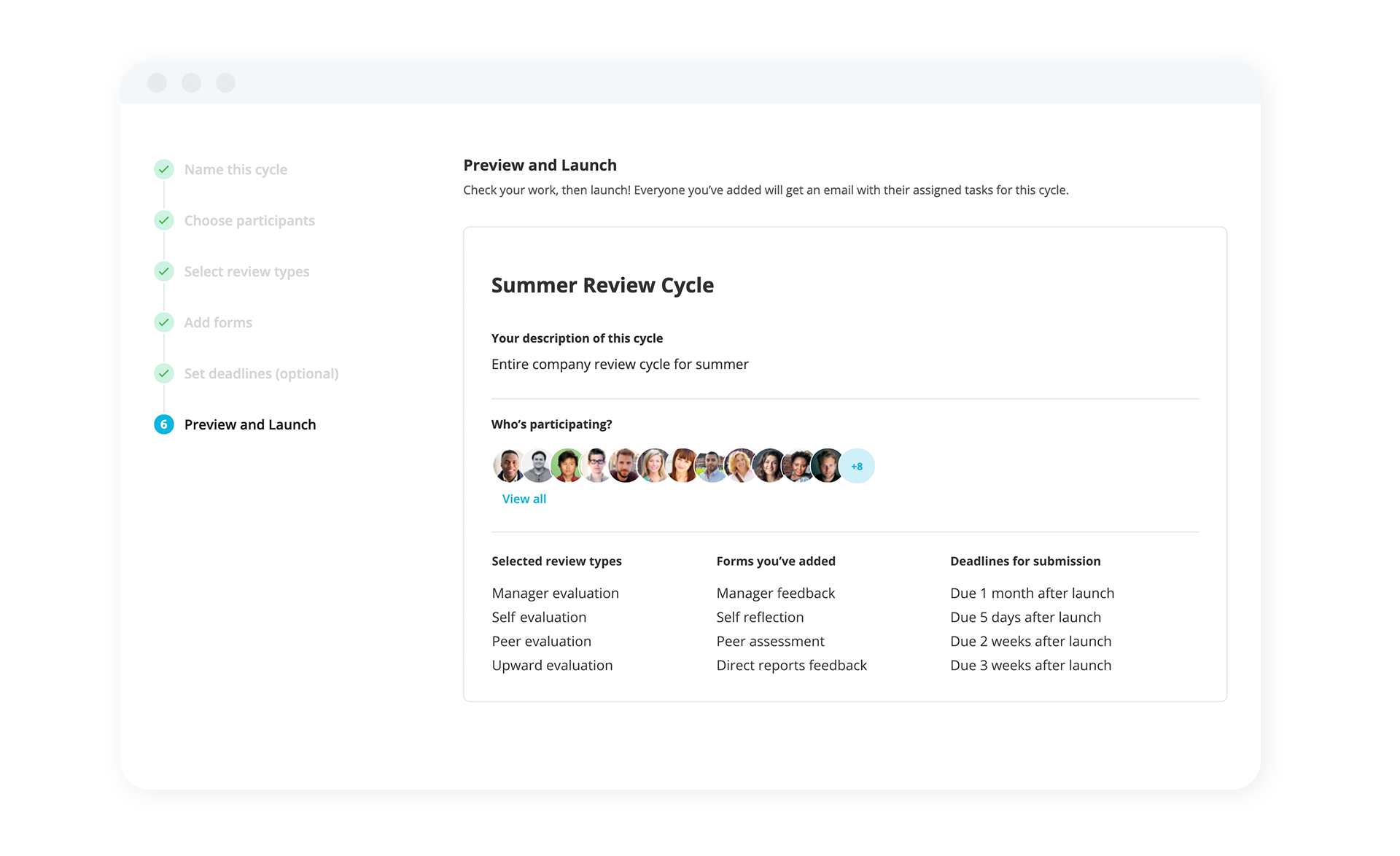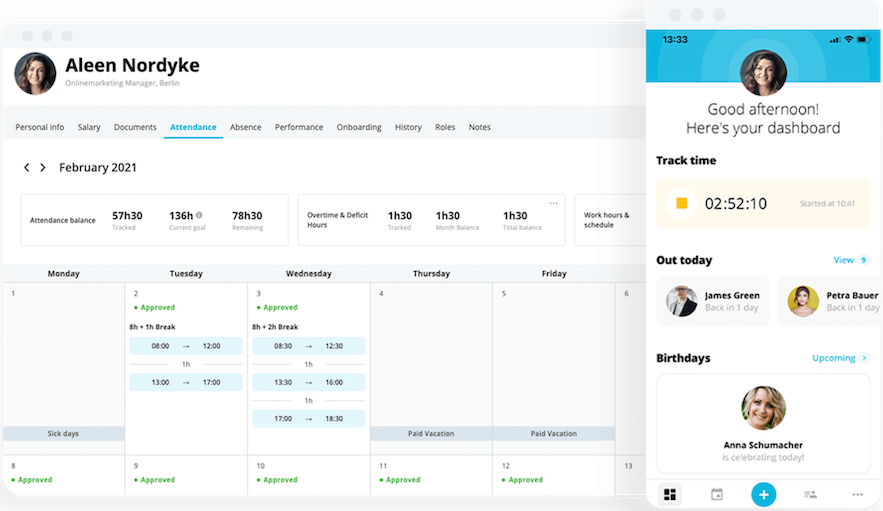Is human resources development (HRD) important?
Human Resources Development (HRD) is a strategic approach to developing the skills and knowledge of employees, enabling them to perform at their best and contribute to an organisation's success.
In this article, we talk a bit about the importance of HRD and how businesses can truly leverage it for success.
Focus on the foundational elements of HRD with our performance management guide.What is human resources development (HRD)?
Human resources development (HRD) is a systematic process designed to enhance the capabilities of employees through HR-led initiatives.
These initiatives often include:
Training courses and workshops
Lectures and seminars
E-learning modules
Professional development programmes
Coaching and mentoring initiatives
Through HRD, organisations can ensure that their workforce has the necessary skills and knowledge to meet current and future job requirements, fostering a culture of continuous learning and growth.
Key insight: In a lot of ways, effective HRD has a key role to play in both effective workforce planning, as well as overall HR strategy.
The importance of HRD for organisations
HRD is important because it focuses on your organisation’s most important asset: its people. To unlock the power of your people, your organisation can leverage HRD practices to build long-term success.
In practice, here’s how that might look:
Improved employee performance and productivity: Well-trained employees are more efficient and effective in their work, leading to increased productivity and organisational success.
Enhanced employee engagement and satisfaction: When employees feel valued and supported in their professional development, they are more engaged in their work and more satisfied with their jobs.
Increased employee retention: HRD initiatives demonstrate an organisation's commitment to its employees, leading to higher retention rates and reduced recruitment costs.
Development of a competitive advantage: By investing in HRD, organisations can cultivate a highly skilled and knowledgeable workforce that can give them an edge over their competitors.
Examples of HRD initiatives
Example 1: Feedback skills development
Objective: To help your employees become better at giving feedback, so as to improve collaboration across teams.
Potential activities:
Run mandatory workshops with external facilitators using a common methodology for giving great feedback.
Facilitate check-ins with teams on a rolling basis to see if they are implementing these practices.
Rely on reporting, a key part of any great HR software, to run reports to see if employees are sharing more feedback.
Expected outcomes:
Improved communication and collaboration between teams.
Increased instances of employees sharing feedback.
More smoothly run performance management cycles.
Example 2: Technical skills enhancement
Objective: To equip a subset of employees with the latest industry-leading skills to help drive innovation company-wide.
Potential activities:
Build out a performance management framework that prioritises and evaluates new skills you want from your workforce.
Collaborate with line managers to embed training and courses into employee career progression frameworks.
Offer certification programmes to validate employee expertise and raise adoption organisation-wide.
Expected outcomes:
Skill development leading to organisational innovation.
Course completion as part of any performance management framework.
High levels of employee satisfaction, retention and decreased turnover.
Enable your line managers to host great performance conversations

Download our performance review template to help your teams design, structure and run performance reviews that truly make the grade. Grab your copy for free right now.
Find your copy herePotential drawbacks of HRD
While HRD might offer numerous benefits, we should also consider some of the potential drawbacks before going ahead and implementing any initiatives:
Cost implications: HRD activities, such as training courses and workshops, require investment in terms of time and money, which can strain resources.
Difficulty in measuring success: It can be challenging to measure the success of HRD initiatives and ensure employee compliance, as there may not be clear indicators or metrics in place.
Employee dissatisfaction: HRD initiatives may lead to employee dissatisfaction if staff feel they are receiving inadequate support or are not being given opportunities to develop their skills.
Best practices: Effective HRD for organisations
To ensure successful implementation of HRD initiatives, organisations should consider the following tips:
Align HRD with the organisation's overall mission and values | This will help create a sense of purpose and direction among employees as they work towards common goals. |
Collaborate across departments | Allow cross-functional teams to work together to ensure that all needs are met and provide a platform for creative problem-solving. |
Invest in technology | Consider using solutions to streamline HRD initiatives and measure their impact on employee performance and morale. |
Regularly assess progress | Monitor performance metrics to identify areas for improvement and optimise HRD strategies over time. |
Key takeaways for organisations
If your team is looking to implement HRD initiatives, there are several key points to keep in mind:
Tailor any programme to your organisation's specific needs: Ensure that any new technologies or processes needed for successful implementation are supported.
Secure executive buy-in: Gain support from all staff members and stakeholders to increase the chances of success.
Assess current HR capacity: Allocate resources effectively to reduce costs while still meeting quality standards.
Iterate regularly: Provide feedback so employees can track their performance against set targets.
The key to great HRD: Performance

Investing in human resources development (HRD) can be hugely beneficial for organisations. And it can all start with having a great performance management programme in place.
Personio’s all-in-one HR software solution comes complete with a Performance & Development feature that can help you run automated performance reviews, collect feedback and focus on the skills you want from your workforce.
Learn more about it by clicking here or speak to one of our helpful experts now.

